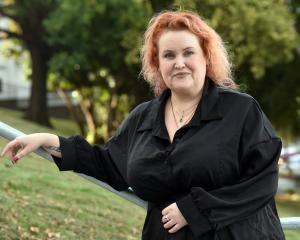Scott McInnes has recently completed a Barnardos KidStart home-based carer course and is keen to put his new skills to use.
However, the people the organisation have passed his details on to so far have said no, because he is male.
"Barnardos are working hard to put people my way. I want a career," he said.
As a father of four, he has plenty of experience caring for children and has wanted a career in the education sector for years.
He works part-time and cares for two of his children at home.
His partner is on a higher wage than him, so it made more sense for her to work, he said.
While he admits he was expecting people to say "no" to him at the beginning, he was "confident there will be the right person out there".
Barnardos Otago Southland recruiter trainer Gail Beveridge said the organisation was promoting the idea of males working in the sector.
Mr McInnes was the only male carer it had in the South Island and it was committed to getting him involved in the organisation.
"People need to be more aware that we need a mix.
"You have to start somewhere," she said.
When she first met Mr McInnes, Ms Beveridge was impressed with his patience and believed he had all the skills the organisation would looks for in carers.
Males brought a different energy and perspective to the role which was "refreshing".
"It's sad we have this thing where we fear what we don't know," she said.
It was also important for those children with no male influence to have the opportunity to be cared for by a male, she said.
University of Otago College of Education lecturer Dr Steven Sexton said Mr McInnes would find working in the sector "hard" and believed parents would probably prefer to be referred to him.
"He will have a very hard start, but once he gets going and word gets around, he will probably have a waiting list," he said.
Dr Sexton said it was the "fear of the unknown" or "media perception" which prevented people from choosing a male carer for their child.
Older generations will remember the case of convicted child abuser Peter Ellis, but he hoped perceptions would change over time.
Any males wanting to enter the education profession would have to be "comfortable with who they are" because of the risk of others questioning their motives, Dr Sexton said.












